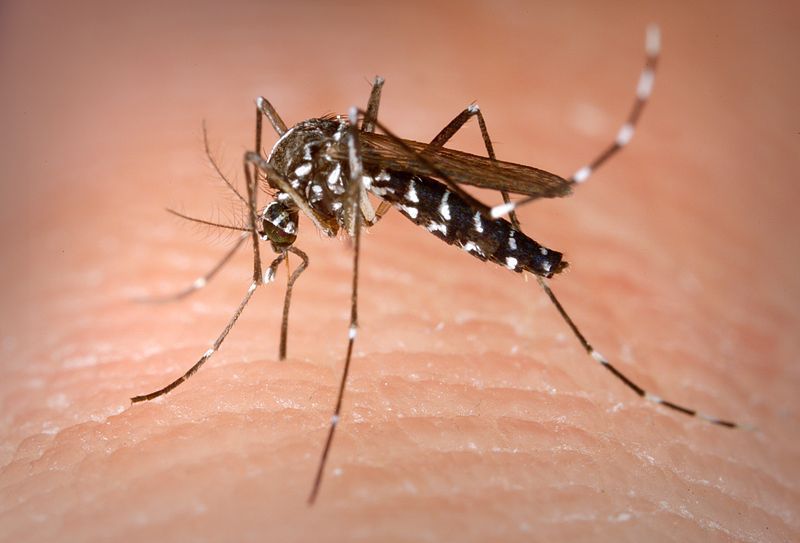What’s Bugging MICHAEL STRAND?
by
When warm weather approaches, so do pesky little bloodsucking pests.
The unassuming mosquito may be smaller than a dime, but it packs a serious punch, killing more people each year than any other animal. And with average temperatures climbing around the globe, different mosquito species are making their way farther north than ever before and bringing their diseases—malaria, West Nile, dengue, and more—along for the ride.
But thanks to recent discoveries at the University of Georgia, it may soon become easier to fend off the swarm.
Regents Professor of Entomology Michael Strand’s lab found that microorganisms, or microbes, in a mosquito’s gut are essential for growth and development. Mosquito larvae spend anywhere from a few days to two weeks developing in pools of water that can be as small as an upside-down bottle cap. Microbes colonize the larvae’s digestive tracts, forming a community of microorganisms that enables the larvae to mature into adult mosquitos.

The implications of the findings could lead to new approaches for mosquito control.
“If you can disrupt their growth cycle, you could control mosquito populations,” Strand says. “Certain combinations of these organisms that exist in the digestive system of the mosquito also affect how well they are able to acquire and transmit disease-causing microorganisms to people.
Understanding how these organisms alter the mosquito’s ability to transmit diseases offers the potential for increasing resistance to certain organisms they can pass on to people.”
From a more basic science perspective, insects provide a more simplified version of a microbiome, the ecological community of microorganisms that call a space home. Researchers often discuss the roles microbiomes, such as that of the human gut, play in an individual’s health, but it’s difficult to sort through the billions of different organisms that can be present. Mosquitoes, and other insects in general, are much less complex, sometimes hosting only several hundreds of microorganisms in their digestive tracts. The smaller number of microbes make it easier for researchers to study.
“In effect, this simplicity reduces the many variables involved,” Strand says. “Some of the rules determining the importance of gut microbes in mosquito development may also have generalizable applications in how similar processes are regulated in larger animals.”
Sting like a Bee
Mosquitoes aren’t the only insects Strand studies.
His interests lie in parasitology, or how parasites interact with the animals they feed from. Parasitic wasps, comprising over a million different species, are the perfect medium to study parasite-host interactions.
Around 100 million years ago, some parasitic wasps were infected by a virus that became part of their genome. Wasps coopted that virus to deliver different types of genes into hosts.
One way wasps accomplish that is by injecting the coopted virus into other insects along with their eggs. The virus then infects the insects’ cells in much the same way as modern medicine’s gene therapies that use viruses to introduce genes into human patients for disease prevention or treatment.
The virus’ genes suppress the host insect’s immune defenses, which would otherwise destroy the foreign eggs. The wasps can then hatch and develop into adults while slowly consuming the host from the inside out.
SUPPORT OUR RESEARCH
Give to the Center for Tropical & Emerging Global Diseases General Fund
[button size=’large’ style=” text=’Give Now’ icon=” icon_color=” link=’https://ctegd.uga.edu/give/’ target=’_self’ color=” hover_color=” border_color=” hover_border_color=” background_color=’#b80d32′ hover_background_color=” font_style=” font_weight=” text_align=’center’ margin=”]
The article first appeared on UGA’s Great Commitments.
